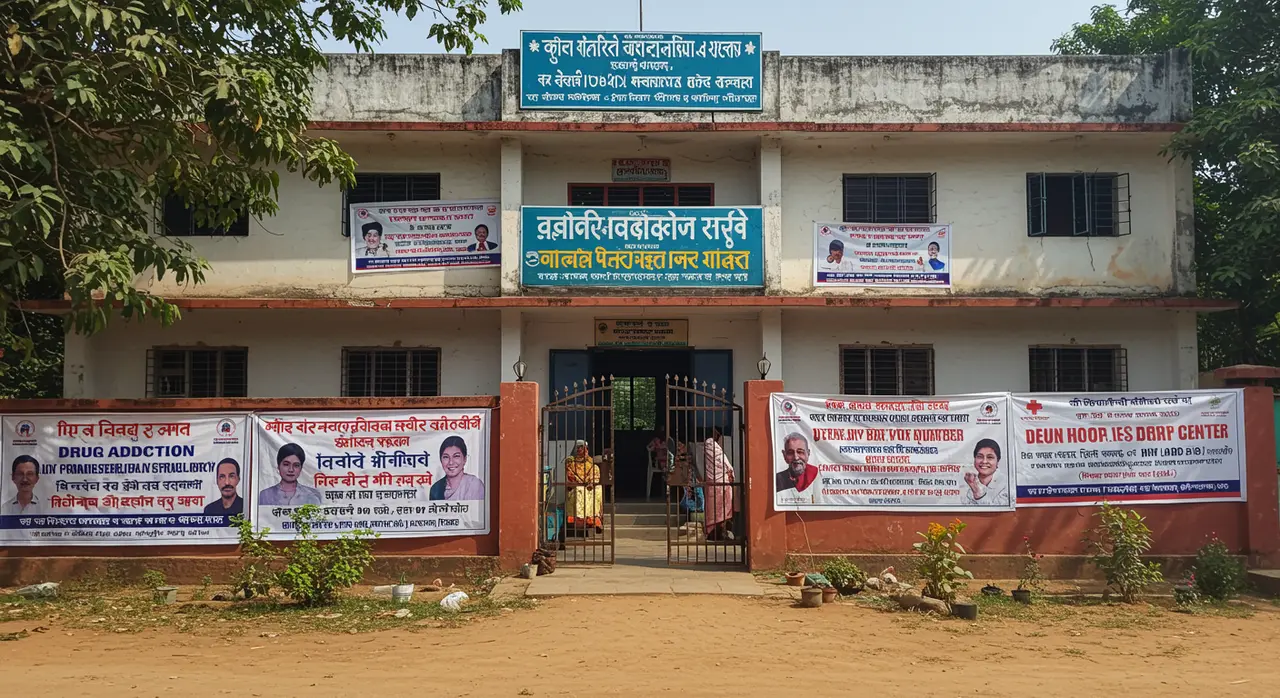Tripura Leads with OST Centers in Battle Against Drug Addiction and HIV/AIDS
34 views
In a resolute stride toward combating the intertwined crises of drug addiction and HIV/AIDS, Tripura has emerged as a model of proactive intervention and community engagement. Chief Minister Manik Saha, addressing the Assembly, unveiled a detailed account of the state’s efforts, revealing that as of January 2025, 5,520 injection drug users had undergone treatment at Opioid Substitution Therapy (OST) centers. Among them, 612 individuals have successfully completed their therapy, reclaiming their lives and reintegrating into society. This achievement underscores the potential of targeted initiatives to transform lives and mitigate public health challenges.
Tripura’s Multi-Pronged Fight Against Drug Addiction and HIV/AIDS
The state’s approach has been both expansive and deeply rooted in community outreach. Between April 2024 and January 2025, the Tripura AIDS Control Society spearheaded an ambitious awareness campaign, reaching an impressive 1.5 million people across schools, colleges, and public spaces. These efforts were not merely informational but aimed at fostering a cultural shift, encouraging dialogue on issues often shrouded in stigma and silence. By engaging diverse demographics, the campaign sought to dismantle misconceptions surrounding drug abuse and HIV/AIDS, while emphasizing the importance of prevention and early intervention.

Integral to this endeavor has been the establishment and expansion of OST centers. Three new satellite centers were operationalized in the Dhalai and South Tripura districts, providing crucial access to treatment for communities often underserved by healthcare infrastructure. Additionally, 18 health centers in the West district received approval for conversion into OST facilities, marking a significant leap in the availability of oral substitution therapy. This form of treatment, which replaces injectable drugs with oral medications, not only aids in de-addiction but also curtails the transmission of diseases like HIV and Hepatitis—a dual benefit that aligns with the state’s overarching public health goals.
Currently, Tripura boasts seven standalone OST centers and 19 satellite facilities, forming a robust network that addresses the needs of injecting drug users. These centers serve as lifelines, offering not just medical treatment but also psychological support and pathways to reintegration into mainstream society. The numbers speak volumes: over 5,500 individuals have sought help, and hundreds have successfully transitioned out of addiction—a testament to the effectiveness of these interventions.
The state’s commitment extends beyond direct treatment services. Awareness programs targeting local government officials have been organized, ensuring that those in positions of influence are equipped with the knowledge and sensitivity required to address these issues within their jurisdictions. In January 2025 alone, messages advocating for awareness and prevention were displayed on 21 LED screens across Tripura, a strategy that underscores the importance of visibility in public health campaigns.
Tripura’s approach reflects an understanding of the multifaceted nature of addiction and its ripple effects on communities. By combining treatment, awareness, and infrastructure development, the state is addressing not just the symptoms but the root causes of drug abuse. The operationalization of OST centers in remote districts highlights a commitment to equity, ensuring that even the most marginalized populations have access to life-saving interventions.
The broader implications of these efforts are profound. Drug addiction, often stigmatized and criminalized, is being approached as a public health issue rather than a moral failing. This shift in perspective is crucial in fostering an environment where individuals feel encouraged to seek help without fear of judgment or punitive measures. Moreover, the focus on HIV/AIDS prevention through education and treatment integration exemplifies a holistic strategy that recognizes the interconnectedness of health challenges.
As Tripura continues to expand its network of OST centers and deepen its community engagement, the state sets a precedent for others grappling with similar issues. The success of these initiatives hinges not only on their design but also on sustained political will and community buy-in. The reintegration of 612 individuals into society is more than a statistic; it is a narrative of resilience, hope, and the transformative power of targeted interventions.
In reflecting on Tripura’s journey, one is reminded of the critical role that local governments play in addressing global challenges. The state’s efforts resonate far beyond its borders, offering a blueprint for tackling addiction and its associated health crises with compassion, innovation, and inclusivity. As the numbers grow and the impact deepens, Tripura’s story becomes a beacon for regions striving to navigate the complexities of public health in the 21st century.